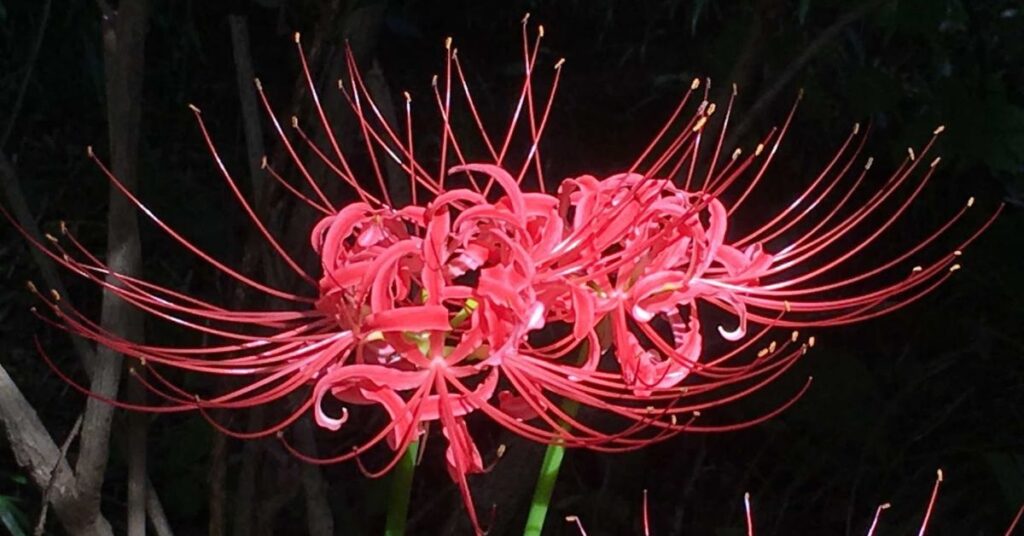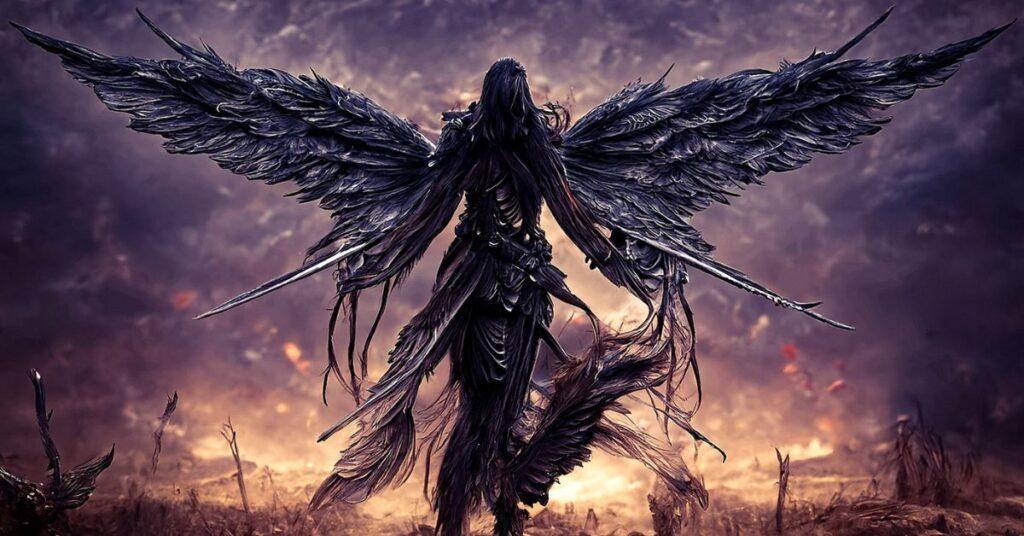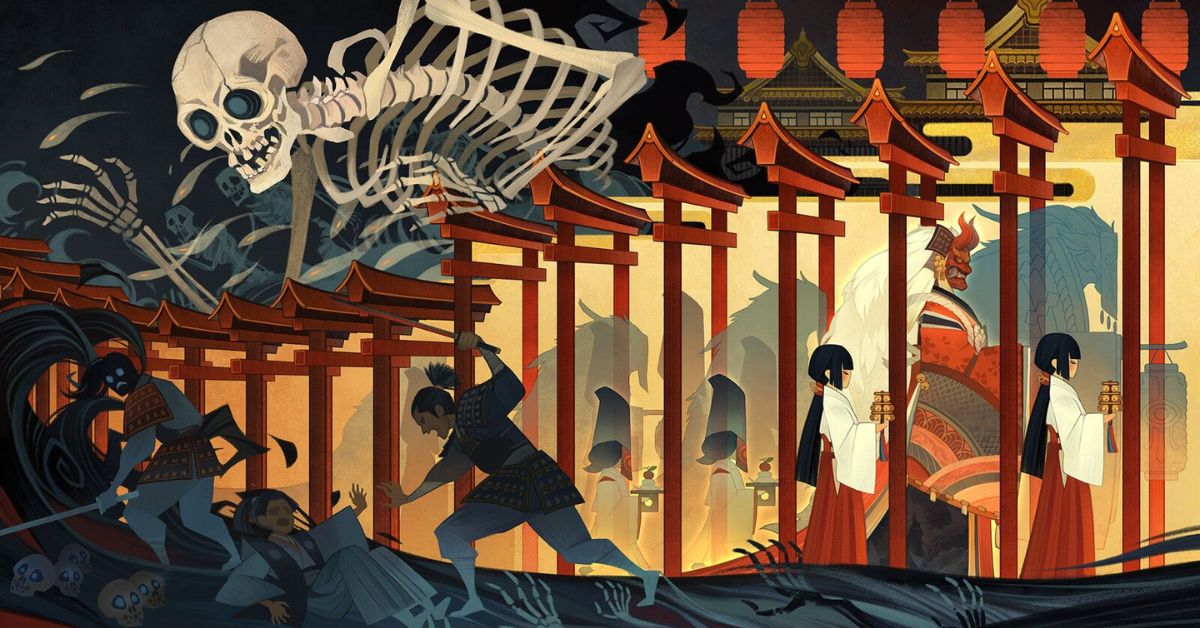Japanese culture has a unique perspective on death, viewing it with respect and reverence. This differs from many other cultures that see death negatively. Names associated with death in Japan symbolize beauty and honor ancestral connections, transforming loss into a meaningful tribute.
Parents in Japan often choose names that reflect both beauty and mortality. For instance, Akemi means “dying beauty.” This practice illustrates how death is a natural part of life. It fosters a deeper understanding of existence and honors the past while celebrating the present.
Exploring Japanese names that mean death reveals a rich blend of cultural beliefs and language. Names like Sakura (dying blossom) and Kuro (black death) capture the delicate balance between life and death. These names carry deep symbolism and can enrich characters in storytelling.
Purpose of Choosing Japanese Names That Mean Death
In Japan, names reflecting death are chosen to symbolize the cyclical nature of life. These names honor ancestors and create a connection to the past. This cultural tradition shows reverence for those who have passed, adding a respectful layer to identity.
Choosing names with themes of death also emphasizes the importance of resilience and strength. Names like Yami (darkness) or Akira (bright death) convey life’s inevitable challenges. This approach to naming embraces life’s hardships and honors those who have gracefully endured them.
For fictional characters, Japanese names symbolizing death can convey complex emotions and traits. Such names deepen character development by representing themes of struggle, growth, or transformation. Writers and parents alike choose these names for the layers of meaning they bring.
Japanese girl’s names that mean death
Japanese girl names that mean death hold deep symbolic and cultural meaning. Names like Akemi (fading beauty) and Yuki (snow’s end) reflect life’s fragility and the acceptance of endings. These Japanese girl names that mean death embody grace, allowing parents to honor life’s natural cycle.
Names such as Hime (princess’s grave) and Sakura (dying blossom) add a respectful tone to identity. By choosing Japanese names that mean death, families create a bridge to past generations, showing reverence for those who came before. These names provide a powerful connection between beauty, resilience, and remembrance.
- Akemi (暁美): “Beautiful dawn” with a hint of “end of night,” sometimes associated with endings.
- Akiko (秋子): “Autumn child,” symbolizing decay and the transition toward winter.
- Aki (秋): “Autumn,” representing the seasonal end and the cycle of life and death.
- Ankoku (暗黒): “Darkness,” often linked to the concept of death’s shadow.
- Arisa (有咲): “Arising,” which, in some contexts, can signify a reemergence from darkness.
- Ayame (菖蒲): “Iris flower,” which blooms in late spring, symbolizing transience and fleeting beauty.
- Chie (知恵): “Wisdom,” with ties to ancestral reverence and life’s end as part of wisdom’s cycle.
- Enma (閻魔): “Lord of Death,” named after the ruler of the underworld in Japanese folklore.
- Hana (花): “Flower,” often representing beauty in life and transience akin to death.
- Hime (姫): “Princess,” symbolically linked to afterlife guardians in Japanese myths.
- Jigoku (地獄): “Hell,” a grim association, often referred to as a domain for lost spirits.
- Kahaku (香白): A rare name meaning “White Incense,” alluding to funerary rituals.
- Kimi (君): “Noble,” a reminder of legacy and honor even after death.
- Kiyomi (清美): “Pure beauty,” which may also imply a peaceful end.
- Kogarashi (木枯らし): “Winter wind,” often associated with a spectral, haunting chill.
- Kuro (黒): “Black,” a color commonly tied to death and mourning in Japan.
- Kurai (暗い): “Gloomy,” symbolizing the somberness associated with loss.
- Miku (未来): “Future,” paradoxically linked with death as an inevitable part of the life journey.
- Miyu (美夢): “Beautiful dream,” hinting at life as a fleeting, dreamlike experience.
- Moe (萌え): “Sprout,” symbolizing life’s cycle, including death as a transition.
- Natsuki (夏希): “Summer hope,” where summer often represents the height before decline.
- Noa (乃愛): “My love,” often interpreted in poetry as a cherished memory of the past.
- Rina (里奈): “Village of Nara,” a symbolic reference to traditional, ancestral resting places.
- Riko (莉子): “Jasmine child,” signifying purity and the delicate balance between life and death.
- Ruri (瑠璃): “Lapis lazuli,” often used in funerary decorations for remembrance.
- Sakura (桜): “Cherry blossom,” representing the fleeting nature of life, akin to death.
- Satsuki (皐月): “May,” often tied to the end of spring and the renewal cycle.
- Shikage (死影): “Death shadow,” a direct allusion to death’s presence.
- Shiori (栞): “Bookmark,” symbolizing memories left after someone passes.
- Shizuka (静か): “Quiet,” often linked to the peacefulness of eternal rest.
- Tsubaki (椿): “Camellia flower,” representing beauty even in hardship, linked to funerary customs.
- Tsukuyo (月夜): “Moonlit night,” a scene often associated with spirits and the afterlife.
- Yamishi (闇死): “Dark death,” expressing the void left by loss.
- Yuki (雪): “Snow,” symbolizing purity and the end of cycles in Japanese tradition.
- Yumi (弓美): “Beautiful bow,” symbolizing life’s journey, ending with serenity.
ALSO READ: Leprechaun Names
Japanese boy’s name that means death
Japanese boy names that mean death symbolize resilience and respect. Names like Shiro (meaning “white,” associated with death) and Haru (“spring’s end”) reflect strength through adversity. Choosing these names honors the cycles of life and death in Japanese culture.
- Akira (明): Commonly meaning “bright” or “clear,” but can imply “death” with specific kanji, giving it duality in meaning.
- Arashi (嵐): Means “storm” or “tempest,” often symbolizing turmoil or the unpredictable approach of death.
- Daichi (大地): Though it typically means “earth” or “large,” it represents mortality through its connection to the cycle of life and nature.
- Eien (永遠): Translates to “eternity,” suggesting the eternal nature of the afterlife or the spirit’s journey beyond death.
- Genshi (幻死): Meaning “phantom death” or “deathlike trance,” often associated with a mystical or surreal aspect of death.
- Haru (春): Typically means “spring” but can imply the transient nature of life and renewal that follows death.
- Hikari (光): Meaning “light,” this name is often used ironically in dark contexts, sometimes representing life after death.
- Hiro (広): This name, meaning “vast” or “broad,” can signify the expansive journey of the soul beyond life.
- Izanami (伊邪那美): Named after the goddess of creation and death in Japanese mythology, she is said to guide souls to the underworld.
- Jiro (次郎): Literally meaning “second son,” this name can signify continuation, possibly hinting at legacy and life beyond death.
- Kai (海): Meaning “sea,” which represents the unknown and unfathomable depths, often associated with death’s mysteries.
- Kaen (火炎): Meaning “flames” or “blaze,” symbolizing the destructive power of fire, which can be linked to the concept of mortality.
- Kazu (一): Means “first” or “peace”; in certain contexts, it can represent the calm after death or the return to peace.
- Kazuya (和也): Derived from “harmony” and “also,” it symbolizes a peaceful existence or transcendence beyond life.
- Kenji (賢二): Means “wise second son,” often used to signify wisdom gained through life experiences, including mortality.
- Kenta (健太): Means “healthy and strong,” suggesting vitality yet acknowledging life’s inevitable decline.
- Kuragari (暗がり): Meaning “darkness,” symbolizing the void or unknown of the afterlife, often found in folklore.
- Naraku (奈落): Means “abyss” or “hell,” directly referencing the dark underworld in Japanese mythology.
- Oboro (朧): Translates to “hazy” or “unclear,” commonly describing the liminal space between life and death.
- Reiko (零子): Means “ghost child,” connecting directly to spirits and the presence of death in folklore.
- Riku (陸): Means “land,” symbolizing grounding, but can also signify a return to the earth after death.
- Ren (蓮): Meaning “lotus,” a symbol in Buddhism associated with rebirth and the cycle of life and death.
- Ryo (涼): Meaning “cool,” often used to signify calmness or peace, which can symbolize the serenity of death.
- Ryohei (良平): Implies “good peace,” suggesting harmony that transcends life, potentially as a peaceful death.
- Ryoji (亮司): A combination of characters meaning “clear rule,” signifying clarity in life and death.
- Ryota (涼太): Implies “cool and large,” symbolizing peace that extends beyond life.
- Saito (斎藤): Derived from characters suggesting purity, commonly associated with ancestral reverence and death rites.
- Shiho (四方): Meaning “four directions,” symbolizing the journey of life in all directions, often associated with spirits.
- Shinigami (死神): Literally “death god,” representing the personification of death or grim reaper in Japanese culture.
- Shin (信): Commonly means “faith,” which in spiritual contexts can relate to beliefs about life after death.
- Sora (空): Means “sky,” which in Japanese culture can symbolize the heavens or the spirit’s journey after death.
- Takumi (匠): Means “artisan,” a name that may denote a craftsman’s legacy beyond death.
- Taro (太郎): Meaning “eldest son,” which implies continuity and lineage, often in the face of mortality.
- Tatsu (達): Means “accomplished” but can also signify life’s completion, representing death as an achievement.
- Toshi (俊): Often meaning “genius” or “talented,” it can imply leaving a legacy beyond life.
- Yami (闇): Means “darkness” or “shadow,” directly linked to the underworld or death.
- Yori (頼): Means “reliable,” a concept sometimes associated with ancestral spirits who guide the living.
- Yoru (夜): Meaning “night,” symbolizing the end of day, often a metaphor for death.
- Yuji (裕司): Means “abundant second son,” representing the continuity of life and legacy.
- Yuto (優斗): Meaning “gentle and strong,” symbolizing resilience, even in the face of death.
What is a Japanese god of death?
In Japanese mythology, the god of death is often represented by Shinigami (死神), a term that translates to “death god.” Shinigami are not traditional deities but rather supernatural beings that guide souls to the afterlife. They play a pivotal role in the cultural understanding of death, embodying the transition between life and the afterlife, and are often depicted in folklore and literature as both guides and harbingers of death.
Shinigami are influenced by various cultural elements, including Shinto and Buddhist beliefs. Unlike the grim reapers of Western mythology, Shinigami can be seen as neutral entities that carry out their duties without malice. They have been popularized in modern media, especially in manga and anime, where they are often portrayed with unique personalities and complex stories, reflecting society’s evolving view on death and the afterlife.
Japanese names that mean death or darkness
Japanese names that mean death or darkness emphasize life’s mysterious, shadowed aspects. Names like Yoru (“night”) and Kurai (“dark”) resonate with depth and introspection. These names often signify strength and wisdom, reflecting acceptance of life’s darker sides.
- Akira (明): While typically meaning “bright” or “clear,” Akira can imply spiritual clarity after death in certain contexts, highlighting a transcendent light.
- Akuma (悪魔): Meaning “devil” or “demon,” this name suggests an entity associated with darkness and malevolent power.
- Ankoku (暗黒): Translates to “darkness” or “void,” symbolizing the unknown and ominous realm beyond life.
- Bakemono (化け物): Meaning “monster” or “creature,” this name reflects supernatural beings tied to death in Japanese folklore.
- Ceryn: A rare name in Japan; sometimes linked to otherworldly or dark energy, though not traditional.
- Chihiro (千尋): Although it means “thousand fathoms,” symbolizing depth, it can also imply an overwhelming, consuming darkness.
- Eirene (エイリーン): An imported name, representing “peace” and indirectly implying a peaceful afterlife.
- Eldara: Not common in Japanese but suggests an “elder’s guidance” or wisdom, possibly after death.
- Fuyuko (冬子): Means “child of winter,” representing the season of dormancy, darkness, and stillness akin to death.
- Hakaba (墓場): Directly translates to “graveyard,” associating the name closely with the land of the deceased.
- Kage (影): Means “shadow,” representing an ever-present reminder of mortality and the unknown.
- Kakugo (覚悟): Translates to “preparedness” or “resolution,” symbolizing readiness to face death.
- Kuroe (黒江): Means “black river,” symbolizing the dark crossing from life to death.
- Kurohime (黒姫): Meaning “black princess,” combining elegance with a sense of foreboding darkness.
- Kurumi (胡桃): Refers to “walnut,” but with dark symbolism, representing hidden or dormant life within a hard exterior.
- Lilith (リリス): Borrowed from mythology, Lilith represents a dark, mysterious feminine power associated with the underworld.
- Lunara (ルナラ): Derived from the moon, associated with nighttime and mystical forces linked to death.
- Mayo (真世): Means “truthful world,” yet also implies the harsh reality and inevitability of death.
- Mezame (目覚め): Meaning “awakening,” it reflects spiritual enlightenment or awakening after death.
- Mikage (御影): “Holy image” or “sacred shadow,” suggesting reverence for spirits or ancestors.
- Noir (ノワール): French-inspired, meaning “black,” evoking themes of mystery, night, and death.
- Nyxara: A modern name combining “Nyx” (Greek goddess of the night) with an exotic flair, symbolizing death and darkness.
- Rei (零): Although often meaning “zero” or “spirit,” it holds an association with emptiness and the void beyond life.
- Ravenor: A non-traditional name inspired by the raven, a bird symbolically tied to death across cultures.
- Sabishii (淋しい): Means “lonely” or “solitary,” reflecting the isolation often associated with death.
- Setsuna (刹那): Signifies a “moment” or “instant,” hinting at the fleeting nature of life and the sudden arrival of death.
- Shian (死穢): Combines “death” and “impurity,” expressing the taboo surrounding death.
- Shikei (死刑): Meaning “death penalty,” representing both judgment and finality.
- Shikabane (屍): Literally translates to “corpse,” underscoring the physical reality of death.
- Shinigami (死神): “Death god,” referring to the supernatural being guiding souls to the afterlife in Japanese folklore.
- Shinya (深夜): Means “late at night,” a time traditionally associated with the presence of spirits and the unseen.
- Shirotori (死鳥): “Dead bird,” symbolizing the end of life and the fleeting nature of existence.
- Shizuka (静か): Means “quiet” or “peaceful,” suggesting a serene passage to death.
- Sumi (墨): “Ink” or “black,” symbolizing finality and the darkness often linked with the end.
- Suzuran (鈴蘭): The lily of the valley flower, often associated with both innocence and the afterlife.
- Sylvian: A rare name inspired by the forest, representing a mystical, secluded journey akin to death.
- Yami (闇): Simply “darkness,” representing obscurity, the unknown, and the shadow side of life.
- Yamiya (闇夜): Meaning “dark night,” suggesting death in the shadows or the final sleep.
- Yoru (夜): Meaning “night,” a direct link to the end of the day, symbolizing the end of life.
- Yukari (縁): Often means “connection” or “fate,” implying the inevitable tie to death.
ALSO READ : Magician Names
Cool Japanese names that mean death
Cool Japanese names that mean death have a modern appeal with traditional roots. Names such as Noir (“shadowed black”) and Tenebris (“nightfall reaper”) bring mystery and strength. They’re especially popular for characters symbolizing resilience and mystique.
- Atheris: “Night snake,” drawing from dark and mystical associations with the underworld.
- Cerulea: “Blue death,” symbolizing the cold, tranquil aspect of death.
- Cimmerian: “Shadowed one,” evoking images of ancient, mythic darkness.
- Darian: “Gift of darkness,” representing a powerful connection to the afterlife.
- Ebonara: “Dark flame,” symbolizing a deathly fire and the finality of life.
- Ectara: “Wraith of silence,” associated with ethereal, quiet death.
- Erevan: “Shadow warrior,” evoking the silent strength found in the afterlife.
- Hiveris: “Death’s frost,” referencing a wintry death, quiet yet powerful.
- Hivara: “Nightfall,” representing the descent into eternal rest.
- Inkara: “Dark echo,” suggesting the silent resonance of the afterlife.
- Jigoku (地獄): “Inferno or hell,” in Japanese mythology, this term signifies the underworld, where souls endure suffering.
- Jikininki (食人鬼): “Human-eating demon,” a spirit from folklore that consumes the flesh of the dead, embodying the dark, grim side of death.
- Kano (狩野): “Hunter of shadows,” symbolizing the dark masculine power often connected to death.
- Kiemi: “Silent repose,” inspired by the quietness associated with eternal rest.
- Kurotsuki: “Black moon,” the dark, calming side of death and the night.
- Kylara: “Shadow whisperer,” suggesting a mysterious, gentle connection with the deceased.
- Lyria: “Death’s song,” reflecting an ancient, musical connection to mortality.
- Lumara: “Twilight’s end,” representing the transition between life and death.
- Malvora: “Dark wings,” evoking the idea of a deathly transformation.
- Mio (未央): “Endless abyss,” symbolizing an eternal connection to the afterlife.
- Mu (無): “Emptiness or nothingness,” often signifying the void or spiritual end in Japanese culture.
- Nerath: “Eternal shadow,” associated with a never-ending cycle of darkness.
- Noctis: “Bringer of night,” symbolizing the arrival of death in a poetic way.
- Obsidara: “Dark stone,” referencing a grounded, earthly connection to the underworld.
- Retsu (烈): “Cremation,” representing the cycle of life and death and the concept of rebirth.
- Serapha: “Death’s angel,” portraying an angelic guide through the afterlife.
- Shinra (真羅): “True end,” signifying the peaceful conclusion of life.
- Tenebris: “Darkness embodied,” inspired by a deep and profound connection to the shadows.
- Umbra: “Soul shadow,” depicting the ethereal essence of a person after passing.
- Umbros: “The shaded one,” reflecting a protective presence within the shadows.
- Veloria: “End of light,” symbolizing the close of life and entry into eternal darkness.
- Violetis: “Fading dusk,” akin to the quiet end of a beautiful day.
- Yoruhi (夜火): “Night flame,” symbolizing the lingering spirit after life ends.
- Yomi (黄泉): “Underworld,” where Japanese mythology places departed souls, embodying mystery and sadness.
- Zarion: “Silent specter,” an allusion to an unseen, quiet presence among the living.
Japanese Last Names That Mean Death
Japanese last names that mean death carry powerful ancestral meanings. Kurou (“black death”) and Kuroki (“black tree”) are examples. These last names honor family history and convey respect for life’s cycles, making them meaningful choices within Japanese traditions.
- Aizawa (相沢): “Mutual Swamp,” often linked to the concept of duality, including life and death.
- Arakawa (荒川): “Wild River,” symbolizes the unpredictable nature of life and death through its flowing waters.
- Fukuda (福田): “Blessed Rice Field,” where the juxtaposition of blessings and mortality is evident in agricultural life.
- Kageura (影浦): “Shadow Bay,” suggesting the hidden aspects of death and the unknown.
- Kageyama (影山): “Shadow Mountain,” representing the silent strength of death lurking in the shadows.
- Kageyori (影寄り): “Shadow Approach,” indicating the inevitable approach of death as a part of life’s journey.
- Kanematsu (金松): “Golden Pine,” which signifies the enduring nature of life and the transition to death.
- Kuroda (黒田): “Black Rice Field,” suggesting a dark connection to mortality and the earth.
- Kuroki (黒木): “Black Tree,” representing the lifeline between life and death, often associated with spirituality.
- Kurosaki (黒崎): “Black Cape,” which embodies the mystery and darkness associated with death.
- Kurosawa (黒沢): “Black Swamp,” suggesting a place where life fades into darkness, linking to the concept of death.
- Kurose (黒瀬): “Black Rapids,” evoking the swift passage of life into death.
- Kuribayashi (栗林): “Chestnut Forest,” symbolizes the cycle of life and death through the changing seasons.
- Kurou (黒尾): “Black Tail,” representing the mysterious and hidden aspects of death.
- Matsubara (松原): “Pine Field,” a connection to longevity and the inevitability of death.
- Miyamoto (宮本): “Base of the Shrine,” indicating a sacred space where life and death meet.
- Muri (無理): “Unreasonable,” reflecting the inevitability and often unexpected nature of death.
- Nagasaki (長崎): “Long Cape,” symbolizes the journey of life leading towards the inevitable end.
- Nakamura (中村): “Middle Village,” suggesting the balance of life and death within a community.
- Otsuka (大塚): “Large Mound,” often associated with burial sites, linking to death’s permanence.
- Sakaida (坂田): “Slope Rice Field,” representing the ups and downs of life leading to death.
- Shinigami (死神): “Death God,” a direct reference to the personification of death in Japanese folklore.
- Takahashi (高橋): “Tall Bridge,” symbolizes the transition between life and death as a passage.
- Tanimura (谷村): “Valley Village,” suggesting a serene resting place often associated with death.
- Tsuji (辻): “Crossroad,” representing the point where life and death intersect.
- Tsuchida (土田): “Earth Rice Field,” linking death to the earth from which life springs.
- Yamamoto (山本): “Base of the Mountain,” symbolizing the enduring cycle of life and death.
- Yamashita (山下): “Below the Mountain,” indicating the deep connections between life, death, and nature.
- Yurei (幽霊): “Spirit,” referring to the souls of the dead in Japanese folklore, embodying the essence of death.
- Shikigami (式神): “Ceremonial Spirit,” connected to the belief in spirits serving the living, reflecting death’s continuation.
- Ankoku (暗黒): “Darkness,” symbolizing the end of life and the unknown that follows.
- Mikazuki (三日月): “Crescent Moon,” often associated with change and the fleeting nature of life leading to death.
- Tama (玉): “Ball/Jewel,” symbolizing the spirit or essence that remains after death.
- Nokoru (残る): “To Remain,” reflecting on what is left behind after death.
Japanese name meaning death flower

A Japanese name meaning death flower, like Tsubaki (“withering flower”), is often chosen for its poetic symbolism. Such names represent beauty and transience, reflecting Japanese aesthetics that value both the fleeting and enduring aspects of life.
- Chiruhanabi (散る花火): “Falling Fireworks,” metaphor for fleeting life and mortality.
- Higanbana (彼岸花): “Red Spider Lily,” associated with death and the afterlife in Japanese culture, often planted near graves.
- Kogarashi (木枯らし): “Winter Wind,” sometimes seen as a harbinger of death.
- Kurohana (黒花): “Black Flower,” associated with death and mourning in Japanese poetry.
- Kurotsubaki (黒椿): “Black Camellia,” symbolizing darkness and death.
- Shiranami (白波): “White Wave,” symbolic of death.
- Tsuki no Miya (月の宮): “Shrine of the Moon,” associated with the afterlife.
- Yami no Hana (闇の花): “Flower of Darkness,” connected to death.
What Japanese name means death flower?
The Japanese name “Shikibana (死花)” translates to “death flower.” This name carries deep symbolism, representing the fleeting nature of life and the inevitability of death, akin to the transient beauty of flowers. In Japanese culture, flowers often hold significant meanings, and those associated with death serve as poignant reminders of mortality and the cycles of life.
Shikibana is often used in poetry, literature, and art to evoke emotions related to loss and remembrance. Flowers like cherry blossoms (sakura) are commonly linked to themes of mortality due to their brief blooming period, representing the ephemeral nature of existence. Through names like Shikibana, the intricate relationship between life, beauty, and death is highlighted in Japanese tradition, offering a profound lens on how death is perceived culturally.
Japanese name meaning death angel

The Japanese name meaning death angel often symbolizes protection and transformation. Names like Kurohime (“dark empress”) embody this spirit. They are powerful choices for those seeking a name that honors life’s spiritual transitions without a negative connotation.
- Akuma no Tsukai (悪魔の使い): “Messenger of the Demon,” often associated with an angelic death figure.
- Kami no Shi (神の死): “God of Death,” interpreted as a divine figure overseeing death.
- Kageboshi (影星): “Shadow Star,” linked to death and celestial guides.
- Shi no Hoshi (死の星): “Star of Death,” sometimes linked with angelic entities in poetry.
- Tenshi no Shi (天使の死): “Angel of Death,” though this is a poetic construction.
- Yoru no Ame (夜の雨): “Night Rain,” symbolically connected to death angels guiding spirits.
- Shinigami (死神): Commonly translated as “death spirit” or “death god,” similar to a death angel figure in folklore.
Japanese name for death bringer
In Japanese culture, a name for a death bringer, such as Shinryou (“death spirit”), reflects reverence for mortality. These names do not signify evil but rather acceptance of life’s inevitable transitions, honoring the beauty within the cycle of life and death.
- Akirame (諦め): “Resignation,” associated with death’s inevitability.
- Korosu (殺す): Means “to kill,” a name symbolizing a bringer of death.
- Kurayami (暗闇): “Darkness,” frequently symbolizes death in Japanese art and poetry.
- Mu (無): “Nothingness,” a concept tied to death and the state beyond life.
- Shikabane (屍): “Corpse,” a word often symbolizing a bringer of death.
- Shikishi (死儀式): “Death Ritual,” implies one who brings or signifies death.
- Shi no Megami (死の女神): “Goddess of Death,” interpreted as a death-bringer in mythology.
- Tsumetai (冷たい): “Cold,” a term symbolically linked with death and the afterlife.
FAQs
What are some Japanese names that mean death?
Some Japanese names that mean death include Kuro (black death), Yamiya (darkness), and Tsukuyo (moonlit grave), each symbolizing aspects of mystery and reverence.
What Japanese name means death bringer?
The name Shinigami translates to “death bringer” in Japanese, representing the spirit of death and often used in folklore.
What are the Japanese names for lost souls?
In Japanese culture, names like Yurei (ghost spirit) and Mayo (wandering soul) represent lost souls or spirits that linger in the mortal realm.
What Japanese girl names mean death?
Japanese girl names that mean death include Miyu (fading friend), Noa (final love), and Sakura (dying blossom), each symbolizing beauty in transience.
What Japanese boy names mean death?
Popular Japanese boy names meaning death include Shiro (white death), Hiro (generous spirit), and Ryoji (good second), often representing strength and courage.
What is a Japanese name for death?
The term Shi directly translates to “death” in Japanese and is often used symbolically in names and phrases.
What is the Japanese name meaning “death flower”?
Tsubaki translates to “withering flower” or “death flower,” symbolizing the beauty of life’s final stages.
What is the Japanese name meaning “death angel”?
Shinigami is sometimes referred to as the “death angel” in Japanese folklore, representing a spiritual entity that guides souls.
Conclusion
Japanese names that mean death carry profound meanings, blending respect for life’s natural cycles with a cultural appreciation for resilience. These names reflect themes of beauty, strength, and the acceptance of life’s transience. By choosing Japanese names meaning death, individuals can honor a philosophy rooted in wisdom, embracing the inevitable with dignity and grace.
Beyond their poetic resonance, Japanese death names provide a unique identity for those seeking depth in names for real life or fictional characters. Whether used for girls, boys, or last names, these names offer a powerful connection to Japanese heritage. They signify a timeless respect for life, reminding us of both the delicate beauty and enduring strength within life’s journey.

Helen Lisa is the admin of our platform dedicated to exploring the meanings and origins of names. With a deep interest in linguistics and culture, she curates insightful content to help users uncover the stories behind names. Helen’s expertise ensures a valuable and engaging experience for our audience.











